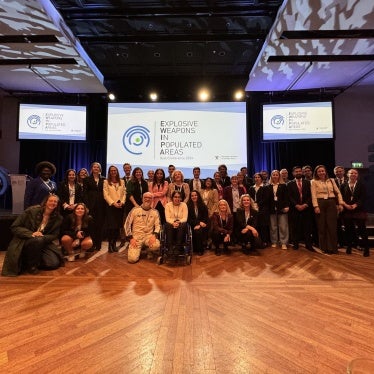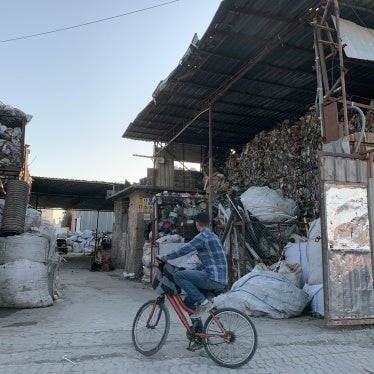Human Rights Watch Daily Brief, 14 November 2014
Burma, Cambodia, Torture Treaty, Syria, Greece, Uzbekistan, Central African Republic
President Obama continued his Asia tour in Burma today, meeting with opposition leader Aung San Suu Kyi, and singling out the discrimination against the long-persecuted Rohingya Muslim minority. The government of Burmese President Thein Sein, and even Aung San Suu Kyi, have refused to say the name "Rohingya". Violence against the Rohingya has escalated in recent months, including the brutal torture and murder of a community leader in western Rakhine state.
According to the latest estimates, some 16,000 Rohingya have fled the country by boat since mid-October, and more than 100,000 since violence erupted two years ago, making it "one the largest boat exoduses in Asia since the Vietnam War."
The Cambodian government is carrying out a new wave of arrests, targeting the opposition party and social activists. The crackdown has been characterized by a range of human rights violations. Cambodia’s donors should speak out against the government’s harassment, arbitrary detention, and summary trials of peaceful protesters.
A US statement on compliance with the Convention against Torture on November 12, 2014 falls short of international obligations. A United Nations panel that monitors compliance of the treaty questioned US policy over the last two days in Geneva. The US statement did take the important step of rejecting the Bush-era interpretation of its obligations under article 16 of the convention, requiring governments to prevent cruel, inhuman, or degrading treatment or punishment.
Some 165,000 Syrians have sought safety in the European Union since the start of the war more than three years ago. 4,552 migrants were rescued in the waters around Chios, Greece in a nine month period — more than twice the number for the whole of 2013, reports The Wall Sreet Journal.
The government of Uzbekistan again used systematic, mass forced labor of upwards of a million people in the 2014 cotton harvest. In 2013, Human Rights Watch documented the forced labor of its own citizens, children and adults – including its teachers, doctors, and nurses – to harvest cotton in abusive conditions on threat of punishment.
And in the Central African Republic, a Catholic priest puts his life on the line to save Muslims. Father Bernard Kinvi protected Muslims threatened by sectarian violence, whom he gathered from their homes and sheltered in his church, in the midst of a violent conflict described by one UN official as“massive ethnic-religious cleansing”.
Your tax deductible gift can help stop human rights violations and save lives around the world.
Region / Country
Most Viewed
-
April 23, 2024
UK’s Harmful Rwanda Bill to Become Law

-
November 25, 2019
A Dirty Investment

-
April 27, 2021
A Threshold Crossed

-
June 24, 2022
Q&A: Access to Abortion is a Human Right

-
June 21, 2017
“Just Let Us Be”




